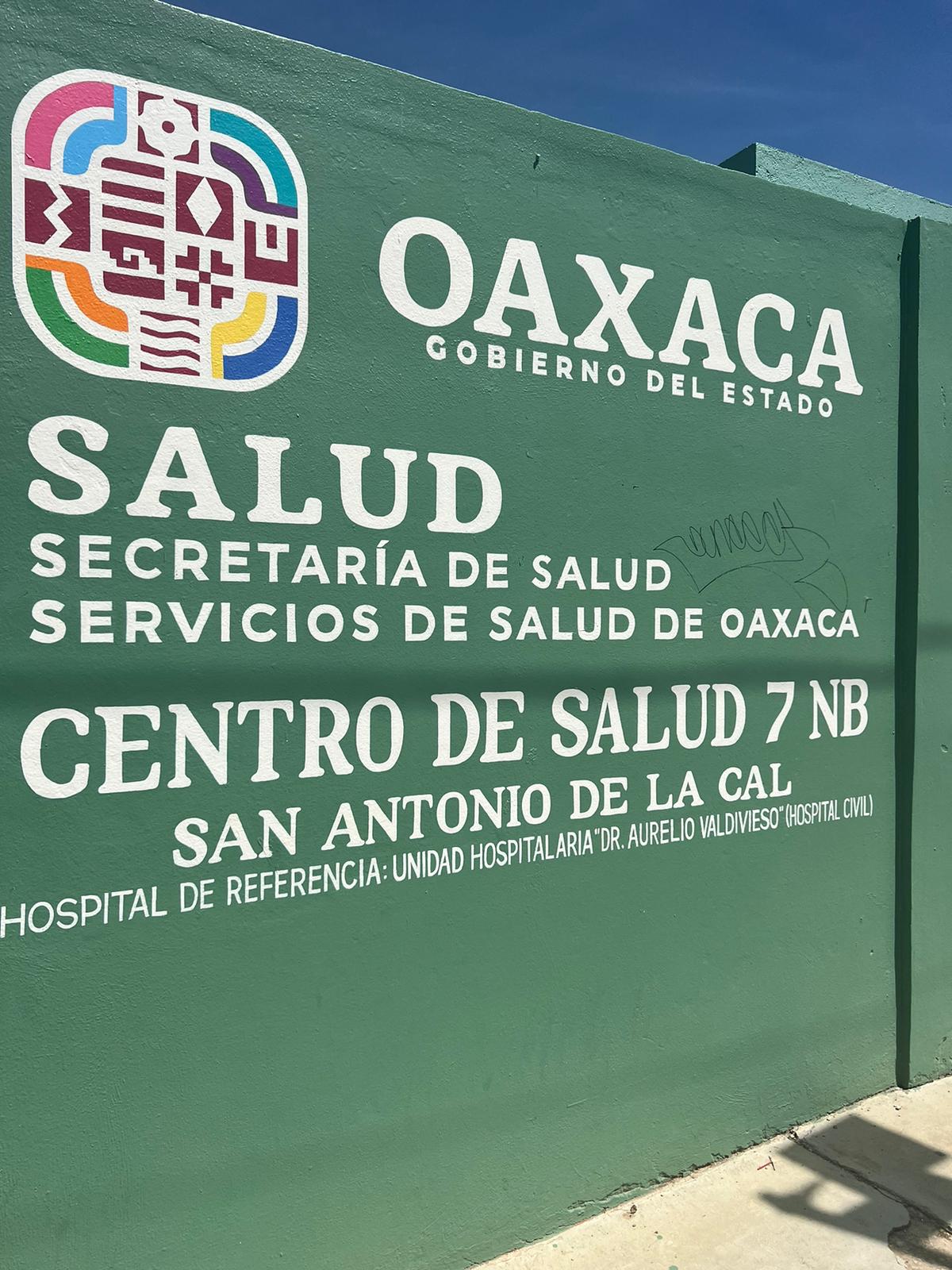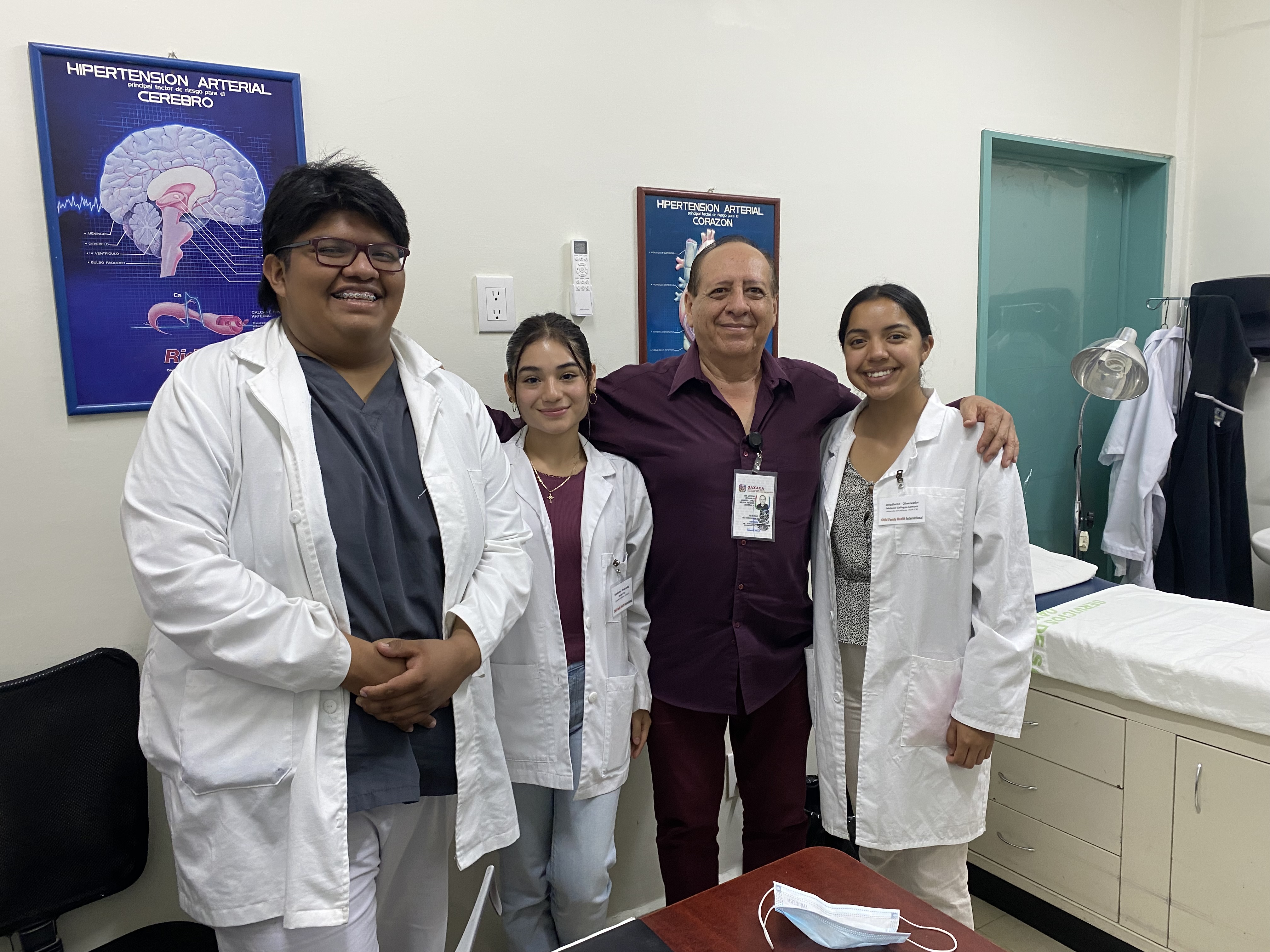
La Salud Es La Mayor Riqueza
Oct. 27, 2023
So far I have had the opportunity to rotate through the Traumatology and General Surgery departments of the local hospital, visit the center for Children’s Rehabilitation Institute of Teleton (CRIT), and rotate through the health centers in different areas in Oaxaca. Throughout my clinical experiences here I have learned that compared to healthcare in the U.S., doctors seem more receptive to traditional healing practices and will embrace it by making recommendations like “As well as taking your medication, you should also drink coconut water to improve your platelet count” for patients with dengue or “I’m prescribing you this medicine to help with your symptoms but if you have bugambilia flowers, make a tea from that as well and it’ll help you feel better too” for patients with the common cold.
I have also noticed that hypertension and diabetes are the most common chronic health issues seen in the population, which is similar to the U.S. and doctors explain this as being caused by increased industrialization/globalization that is changing dietary and lifestyle habits among Oaxacans. In recent years, the typical diet has shifted to include more sugary and fatty foods and the lifestyle has become increasingly sedentary. One difference between both countries is that here in Oaxaca, tropical diseases like dengue or chagas disease are very prevalent. This is something that is not as common in the U.S. and I’m looking forward to learning more about this during the last 3 weeks of the program where we’ll be exploring this topic in Puerto Escondido, on the coast of Oaxaca.
Lastly, one of my biggest takeaways has been learning about cultural values regarding health and well-being. I often hear patients say “La salud is la mayor riqueza” or “Health is the biggest treasure.” It’s interesting because although health is valued greatly, I also noticed how patients would sacrifice their own well-being to put the health of their family first. One parent made sure their children ate the most nutritious meals before themselves, the daughter of a senior couple made sure her parents’ medications were paid for even if it meant going without her own, and one father would neglect his health as long as he was working long enough to provide his family with a comfortable life. This is something that we discussed in lecture and that doctors would explain to me as well, that although health was valued greatly, family was valued more.
It was really insightful to watch doctors listen to their patients tell their stories, take into consideration the patient’s values, and say “If you’re not eating nutritious meals, you could fall sick and won’t have the energy to care for your children. Make an appointment with our nutritionist to learn how your entire family can eat healthier within your means,” or “If you don’t manage your condition by taking your medication, you won’t have the capacity to care for your aging parents. It’s important to take care of yourself too and you can speak with the social worker to see what resources are available to help you and your parents afford the medications,” or “I understand providing for your family is a priority for you, but if you fall ill because you’re not prioritizing your health, you won’t be able to work and this could have a negative impact on you. It’s better to maintain your health and prevent any illness so you don’t lose out on work or quality time with your family.”
I think meeting patients where they are at, providing applicable advice, and being considerate of the factors and values affecting their health is important in any healthcare profession. It’s been helpful to see these practices in-person, in the clinical setting, and it’s something I hope to carry with me in the future as a healthcare professional.

